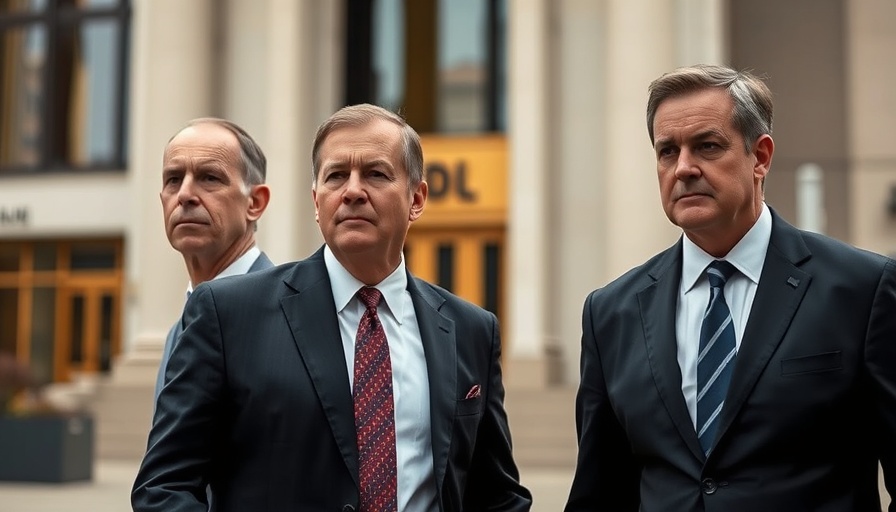
The Incredible Story of Brian Kelsey's Pardon
In a remarkable twist of fate, former Tennessee state senator Brian Kelsey was pardoned by President Donald Trump just 15 days into his 21-month prison sentence. Kelsey, who had pleaded guilty to campaign finance conspiracy charges, expressed his gratitude, declaring, "God used Donald Trump to save me." This statement encapsulates not only his personal relief but also the ongoing political narrative following Trump's presidency.
Circumstances Surrounding the Pardon
Kelsey found himself behind bars after pleading guilty to illegally funneling campaign funds during his unsuccessful 2016 congressional bid. The seriousness of the charges, which included hiding nearly $91,000 in funds from his state senate campaign, had cast a long shadow over his political career. Yet, in a dramatic turn, Kelsey received a full pardon, which eliminates criminal charges and restores his rights. This quick redemption highlights the controversial clemency powers of the presidency and opens discussions about justice in America.
The Broader Context of Political Pardons
President Trump is no stranger to the power of pardons, having previously granted clemency to around 1,500 individuals, especially those connected to the January 6 Capitol riots. Kelsey’s case, however, raises important questions about how political affiliations can influence judicial outcomes. With many of Trump’s actions facing scrutiny, this pardon of Kelsey appears to resonate with ongoing debates about the "weaponization" of the Justice Department under President Biden—a narrative Kelsey himself promoted, stating he was targeted due to his conservative ties.
Implications for Future Political Campaigns
Kelsey’s pardon can serve as a potential blueprint for fellow political figures facing similar legal challenges. The involvement of Republican congressmen like Mark Green, Andy Ogles, and Chuck Fleischmann, underscored a united front among party members in seeking clemency for Kelsey, indicating strong party loyalty. This case may influence how future campaign finance laws are applied and how accusations will be treated in the polarized political environment.
Conclusion: A Call for Reflection
As taxpayers consider the implications of such pardons, it becomes clear that transparency and fairness in the judicial process must remain a priority. Understanding the dynamics between politics and the law can aid in fostering a more equitable system. With such high stakes involved, scrutiny of these pardons can lead to necessary reforms or reaffirmations of our commitment to justice.
 Add Row
Add Row  Add
Add 




 Add Row
Add Row  Add
Add 

Write A Comment